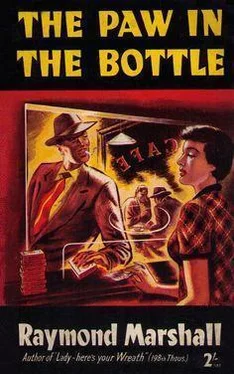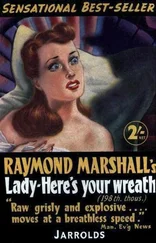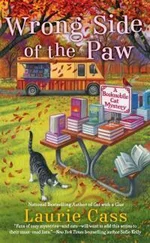He had sent her home, and she hadn’t stolen again.
But as she grew up her envy of riches increased and her mind was obsessed with the longing for money. When her parents were killed in an air raid and she set up on her own in a dingy bed-sitting-room, the unexpected freedom of supervision led to the discovery of a hitherto unsuspected means to get what she wanted. She learned, now that she could stay out at all hours of the night, that there was something about her that attracted men. She had been vaguely aware of this power for some time, and at first she had resented the way men, at the slightest opportunity, put their hands on her. She was irritated when bus conductors helped her off the bus, when old gentlemen took her arm and insisted on seeing her across the road, or when a heavily-breathing man ran his hand down her leg in a cinema while he pretended to hunt for a dropped article in the darkness. But, after a while, she became used to these attentions, and now she had freedom she wondered if she couldn’t capitalize this power.
The war and the coming of the American troops gave her the opportunity, and she joined the vast army of other young girls who came from the East End to have a good time with the Yanks.
Although only seventeen at that time, Julie quickly acquired a sophistication that distinguished her from the other giggling chits who hung about at street corners ogling the G.I.s as they loafed along Piccadilly. She mixed exclusively with the officer ranks, and her dingy bed-sitting-room scarcely ever saw her at night. Before long she acquired a veneer that a steam hammer couldn’t crack, a wardrobe of flashy clothes, an intimate knowledge of the physical desires of men and fifty pounds in the Post Office Savings Bank. For a time she lived well, but the war ended and the Americans went home. Then followed the lean years, and life became a wangle. She had to wangle to avoid being sent to a factory. She had to wangle to get clothing coupons, food and money. She was lucky to get the job at the twopenny library, although it only paid two pounds ten a week. It was all a wangle now, and she began to realize that those who didn’t take risks these days were in for a thin time. It seemed now that you were either honest and went short or you were dishonest and had a good time. There seemed to be no happy medium. She knew the Bridge Cafe had an unsavoury reputation and was a meeting place of crooks, but the money was good, and that was all that mattered. She was sick of making do on fifty shillings a week.
‘If you work for Hewart you’ll meet all the wide boys,’ the young spiv had told her. ‘Play your cards right and you won’t be short of anything. A girl with your looks should be having fun. You don’t call this library fun, do you?’
Seven pounds a week! That decided her. What did it matter if the café was shady? She could look after herself. If Hewart would have her, she was ready to work for him.
As soon as Hewart saw her he knew she was the right type for the job.
‘There’s two jobs going here,’ he told her. ‘One of them is for the day shift and pays three quid a week. There’s not much to it. A bit of cleaning, preparing sandwiches for the night trade. Not much of a job... but a job.’
‘And the other?’ Julie asked, knowing well enough that the second job was the one she was going to take.
‘Ah,’ and Hewart winked. ‘The other’s a good job. A job for an ambitious girl who can keep her mouth shut. Might suit you.’
‘And what does that pay?’
‘Seven quid a week. You’d look after the cash desk and take messages. It’s night work — from seven to two in the morning. But you’d have to keep your mouth shut, and when I say shut, I mean shut, see?’
‘I don’t talk,’ Julie said steadily.
‘It doesn’t pay to; anyway, not in this neighbourhood. I remember a girl, not much older than you, and as pretty, who heard something that didn’t concern her, and she talked. You know how it is: girls like to talk; second nature to ’em. They found her in a back alley. Made a mess of her looks. No, it doesn’t do to talk.’
‘You don’t scare me,’ Julie said sharply. ‘I wasn’t born yesterday.’
‘That’s right,’ Hewart grinned at her. ‘You’re smart. The moment I saw you I knew you’d do. Now, listen, we give our customers service, see? Taking messages is an important part of the service. You’ll have to be smart about that. Nothing must be written down. You’ll have to pass the messages quick. There may be as many as twenty a night. For instance, you may get a ’phone call for Jack Smith, see? You’ll have to know who he is and whether he’s in the place or not. If he isn’t, you say so and take the message. It’s your job to see Smith gets it as soon as he comes in, and no one else must know about it. You’ll have to be smart all the time. But you can do it. There’re no flies on you.’ Seeing her hesitate, Hewart went on: ‘You won’t know anything, see? What you don’t know about you can’t get into trouble about, can you? This is a chance to pick up a little easy money. Some of the boys will slip you a quid, maybe two, for giving them a message. I’ve seen it done. And listen, I like you. I’ll make it eight quid if you’ll take the job. Can’t be fairer than that, can I? The boys’ll be crazy about you. You’re smart; pretty, too. I know a good thing when I see it. Think: eight beautiful pound notes every Friday. Think of the silk stockings you can buy.’
But Julie wanted to know more about the job before being rushed into it. She said so.
‘That’s where you’re wrong,’ Hewart said. ‘You don’t want to know anything — like me. I just run this place, see? The boys and girls come here. They leave messages; sometimes a parcel or two, and I give ’em food and a little service, but I don’t ask questions. Sometimes the bogies look in. They want to know this and that. I don’t know anything so I can’t tell ’em lies, can I? They may talk to you, but if you don’t know anything what can you tell ’em? That’s what I call being smart.’
‘The police come here?’ Julie asked, startled. ‘I don’t think I’d like that.’
Hewart waved his hand impatiently.
‘You know as well as I do the police poke their noses in everywhere. It’s their job. It doesn’t matter where you work, the police’ll look in sooner or later. Who cares? We’re not doing anything shady: we’re giving service. It’s not our funeral if our customers get up to tricks, is it? And besides, why do you think I’m offering eight quid? The job’s worth fifty bob. I could get dozens of girls for fifty bob: hundreds of ’em. But I’m paying eight quid because the bogies might ask questions. I don’t say they will, but they might; and I know a girl doesn’t like being mixed up with the police. No one does, so I pay a little more.’
Put like that it seemed reasonable enough, and the money, of course, was marvellous. If she let this chance slip through her fingers she might never get another.
‘All right,’ she said, ‘I’ll take it.’
She was surprised how easy the work turned out to be. The café didn’t get busy until after eleven o’clock. Then the regular customers began to drift in and soon the place was full of cigarette smoke and the murmur of voices. It was like having a front row in the stalls, Julie thought. Sitting in the glass-screened cash desk, she didn’t feel she was part of the room, but rather an unseen observer looking through a secret window at an odd, exciting play. Hewart, cigar between his teeth, a big diamond ring flashing on his little finger, had stayed with her on her first night. He kept up a muttered commentary on the people in the room.
‘The bloke over there in the fawn coat is Syd Bernstein,’ his voice droned in Julie’s ears. ‘Remember him. He’s got a big fur store in Gideon Road: expect you’ve seen it. If you ever want a cheap fur go to Syd. He’ll fix you up if you mention my name. The fella he’s talking to is the Duke. They call him that because of his beautiful manners. You watch him. You’ll never catch him drinking out of his saucer. Never mind what he does for a living. The less you know... That’s Pugsey over there. The fella in the grey suit; big dog-racing man. Knows more about doping dogs...’ Hewart caught himself up, cleared his throat: ‘Well, never mind that. He’s Pugsey; just remember who he is and forget the rest. The bloke lighting a cigarette is Goldsack. Now there’s a smart ’un for you. When I met him — couldn’t be more than a couple of years ago — he wasn’t worth thirty bob. That’s straight. Now he can write a cheque for ten thou, and thinks nothing of it. He’s one of the big betting boys.’
Читать дальше











